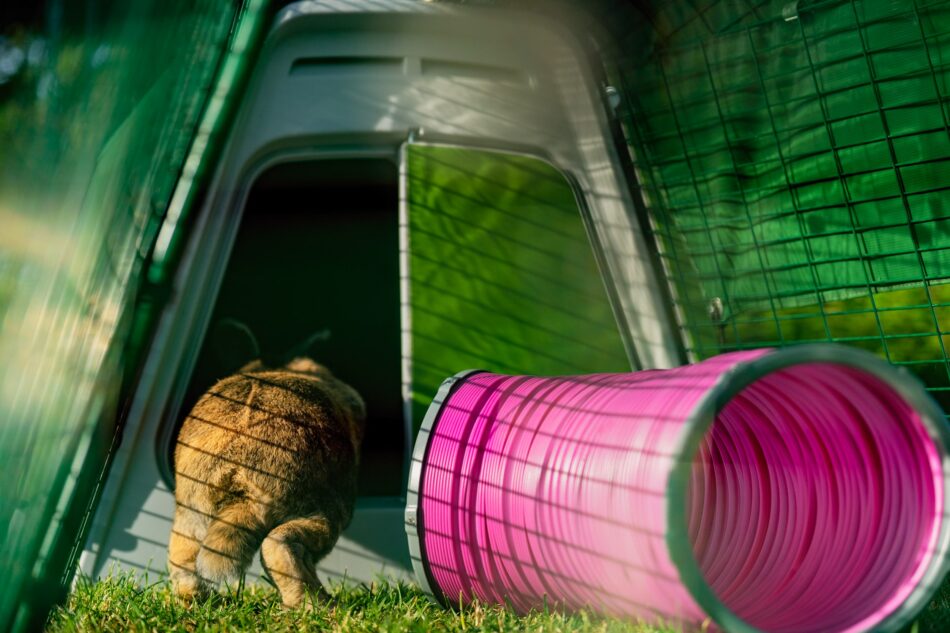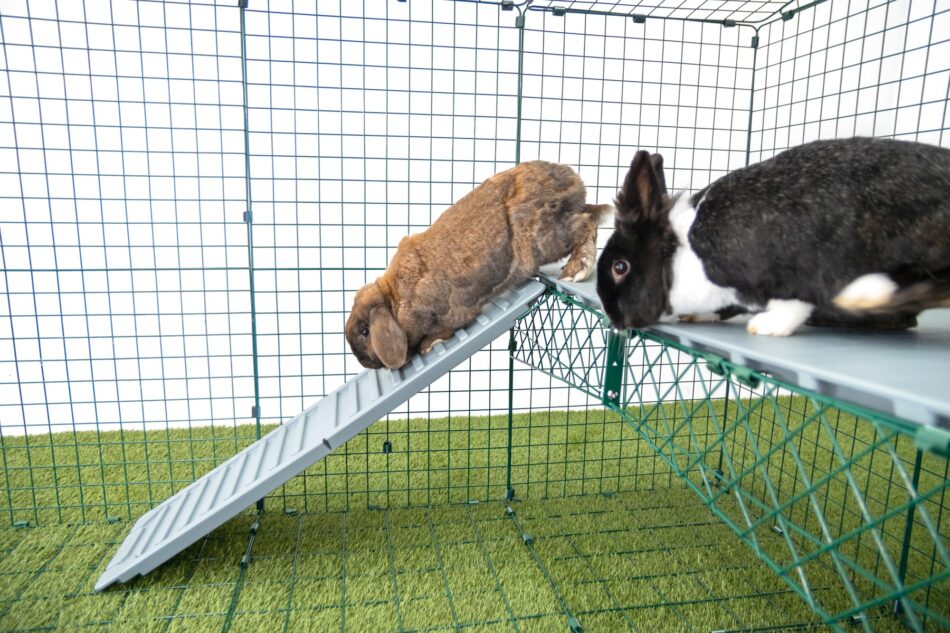Which is the best rabbit for you?
Rabbits make great family pets, and there are many different breeds to choose from. Some are easier to care for than others, making them ideal choices for beginners or children. Other breeds can prove more challenging to care for, but can be enjoyed by more seasoned rabbit-owners. So, which is the best rabbit for you? We’ll outline our top picks.
Children and rabbits
Although they make good pets for kids, rabbits might be disappointing as a first-time pet for young children. This is because most rabbits aren’t fond of being picked up and carried around, and can cause accidental injury to both themselves and children due to their powerful back legs and sharp claws. But, this isn’t to say that rabbits can’t be good pets for children.
Because bunnies need a gentle and practiced hand, it’s best for parents or older siblings to be the ones handling them. Younger children can enjoy sitting with, petting, helping feed, and observing pet rabbits, making rabbits good pets for children of all ages.
5 best rabbit breeds to own
We aren’t trying to play favorites, but there are a few rabbit breeds that stand out as ideal choices for first-time rabbit owners. Their overall personalities, low-maintenance grooming needs, and basic housing requirements make these breeds great options for families.
Mini Lops
Big floppy ears, but with a compact, easy-to-house stature, Mini Lops are a favorite among first-time rabbit owners and breeders alike. They have outgoing personalities, and are known for being good with children. Mini Lops have short-medium coats that don’t require much grooming, and top out between 4.5-6 pounds. They’re easily trained and are social with other rabbits and humans.
Holland Lops
Similar to their cousins, Holland Lops have floppy ears and small bodies. Their faces are more flat than Mini Lops, and their ears are shorter and more rounded. Holland Lops weigh 4 pounds or less when they’re full grown, but have lots of energy. They’re social and enjoy interacting with humans and other rabbits, but need plenty of space to exercise. Because of their energetic nature, Holland Lops prefer to play with their owners rather than be carried around — but they’ll enjoy a good snuggle.
Lionheads
As their name suggests, Lionhead rabbits have tufts of hair encircling their heads that appear like a lion’s mane. While they do have extra hair that requires brushing from time to time, Lionheads have small bodies that weigh between 2.5 and 3.5 pounds when full-grown, making them perfect handling size. In fact, Lionheads are known as “lap rabbits”, and actually enjoy being held and handled. Their sweet, laid-back personalities make them a favorite among families.
Himalayans
Himalayan rabbits have a striking appearance — white bodies with dark points and pink eyes. They grow to be between 3 and 5 pounds, and have short hair that is easy to groom. Himalayans have long been appreciated for their calm and patient personalities. They don’t mind being handled, and are one of the oldest domesticated breeds of rabbits, making them well accustomed to human interaction. Himalayans are easy to train and care for.
Harlequins
A medium breed weighing up to 9 pounds, Harlequin rabbits are stunning in appearance and are curious and outgoing. They love learning tricks, and respond to praise from their owners. Harlequin rabbits should have plenty of space to expend their energy, and thrive off of human interaction. Their size may make them slightly more difficult for children to handle, but their desire to please makes it easy to train them to come when called and accept being petted and held.
Basic bunny care
No matter which breed you choose, all rabbits have the same basic needs. Before bringing your rabbit home, be sure to have:
- A safe and easy-to-clean rabbit hutch
- Quality, hay-based pellet feed
- Timothy hay to offer as free-choice
- Rabbit-safe bedding such as recycled paper pulp or pine shavings
All rabbit breeds thrive best when they’re given as much space to play and explore as possible. The addition of Zippi Rabbit Tunnels and Zippi Rabbit Playpens broadens your bunnies’ territory and fosters their natural desire to burrow, scurry, and play.
Bunnies need buddies
In addition to their housing, rabbits need companionship. Two neutered males, a neutered male with a female, or two females are all successful combinations. The younger the rabbit, the easier it will be for them to bond with another bunny, but it’s possible to introduce two grown rabbits for a lasting relationship. Rabbits are social animals, and their interactions with each other won’t interfere with the bonds made with their humans.
Consider adopting a bonded pair of rabbits, or obtaining two young rabbits at the same time when starting out. A lonely rabbit may become depressed or act out, so providing your bunny with a buddy will make it easier for you to build a bond with them.
Omlet and your rabbits
Building bonds between you and your bunnies is at the forefront of our designs. Our Eglu Go Rabbit Hutch has everything you and your rabbits need to keep them safe and happy, while our line of Zippi Rabbit Tunnels and Zippi Rabbit Playpens enable you to watch and play with your rabbits in an environment that mimics nature — making your relationship with them as unique as their individual personalities.
This entry was posted in Rabbits

